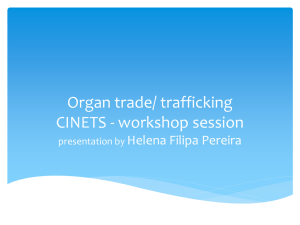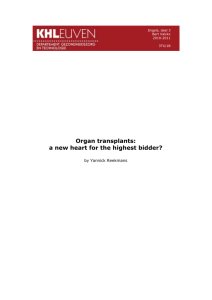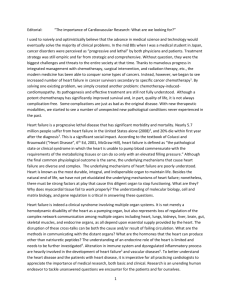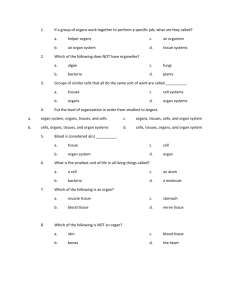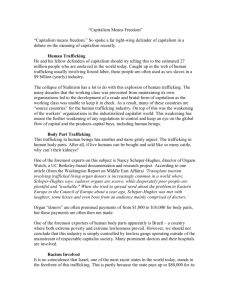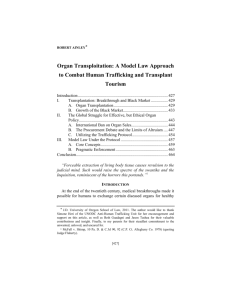Past UN actions regarding organ trafficking include the Madrid
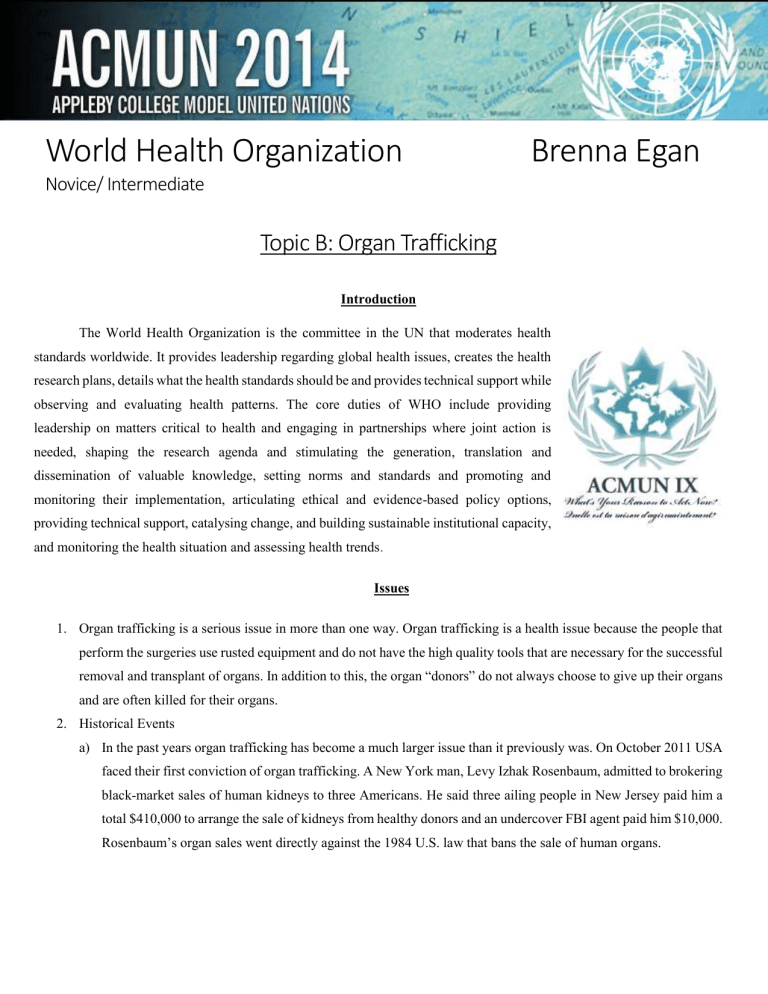
World Health Organization Brenna Egan
Novice/ Intermediate
Topic B: Organ Trafficking
Introduction
The World Health Organization is the committee in the UN that moderates health standards worldwide. It provides leadership regarding global health issues, creates the health research plans, details what the health standards should be and provides technical support while observing and evaluating health patterns. The core duties of WHO include providing leadership on matters critical to health and engaging in partnerships where joint action is needed, shaping the research agenda and stimulating the generation, translation and dissemination of valuable knowledge, setting norms and standards and promoting and monitoring their implementation, articulating ethical and evidence-based policy options, providing technical support, catalysing change, and building sustainable institutional capacity, and monitoring the health situation and assessing health trends .
Issues
1.
Organ trafficking is a serious issue in more than one way. Organ trafficking is a health issue because the people that perform the surgeries use rusted equipment and do not have the high quality tools that are necessary for the successful removal and transplant of organs. In addition to this, the organ “donors” do not always choose to give up their organs and are often killed for their organs.
2.
Historical Events a) In the past years organ trafficking has become a much larger issue than it previously was. On October 2011 USA faced their first conviction of organ trafficking. A New York man, Levy Izhak Rosenbaum, admitted to brokering black-market sales of human kidneys to three Americans. He said three ailing people in New Jersey paid him a total $410,000 to arrange the sale of kidneys from healthy donors and an undercover FBI agent paid him $10,000.
Rosenbaum’s organ sales went directly against the 1984 U.S. law that bans the sale of human organs.
b) In contrast to the US, Iran has legalized organ trafficking. In Iran, the vendor (donor) of the kidney gets a financial compensation from the Government, apart from health insurance for one year. The intermediary (or broker) between the vendor and the recipient (which in countries like India consists of criminal or unscrupulous elements) is a voluntary organization served by patients of kidney disease who contribute their time and efforts without commercial interests. Foreigners are not eligible to receive kidneys in Iran. In Philippines, organ sale within the free market is permissible.
Past UN Actions
Past UN actions regarding organ trafficking include the Madrid consultation. The Madrid consultation unanimously agreed that there should be a WHO expert advisory panel both for allogeneic transplantation, involving organs from an organism of the same species, and xenogeneic transplantation, involving those from another species, and for global safety and quality principles for the regulation of organs and tissues.
Keys of the Resolution
1.
Should organ trafficking be legalized?
2.
If not, what can be done to protect donors from scams?
3.
How could infection from organ trafficking be prevented?
4.
How much should organs be sold for (if legalized)?
Further Reading http://www.who.int/bulletin/volumes/82/9/feature0904/en/index1.html
http://www.who.int/bulletin/volumes/85/12/06-039370/en/ http://www.sott.net/article/242879-Exploitation-of-Poor-By-Human-Organ-Traffickers
